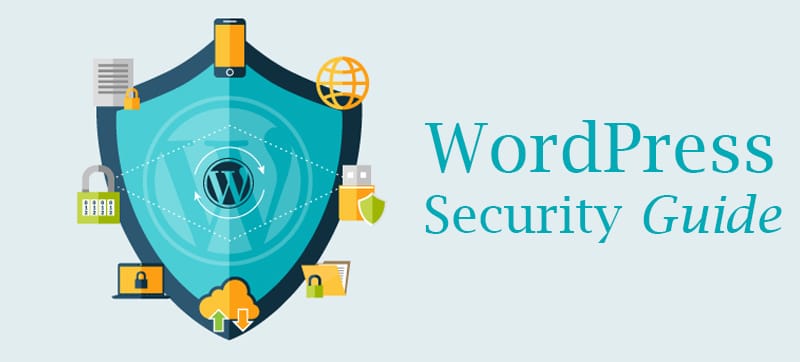WordPress, powering millions of websites globally, is a robust and versatile platform loved for its user-friendly interface and flexibility. However, with great popularity comes the attention of cyber threats. Security breaches, hacks, and vulnerabilities are a growing concern for WordPress site owners, emphasizing the critical need for robust security measures.
At the heart of WordPress security lies a proactive approach that extends beyond mere installation. This comprehensive guide will delve into the essential security practices necessary to fortify your WordPress website against potential threats. From selecting the right WordPress development company to implementing key security measures, we’ll navigate through the steps to safeguard your online presence.
Understanding WordPress Security Risks
WordPress, being an open-source platform, is susceptible to various security threats that website owners must be vigilant about. Here are some common risks:
1. Malware Attacks: Malicious software poses a significant threat, infecting WordPress sites through vulnerabilities in plugins, themes, or unsecured login credentials.
2. Brute Force Attacks: Hackers attempt to gain unauthorized access by repeatedly trying different username and password combinations until they find the right one.
3. Plugin Vulnerabilities: Outdated or poorly coded plugins can create entry points for cyber attackers to exploit, compromising website security.
To combat these threats, it’s imperative to adopt stringent security measures and work with reputable WordPress development companies known for their security-focused practices.
Key Security Measures for WordPress Websites
I. Choosing a Trusted WordPress Development Company
When selecting a WordPress development company, prioritize those with a proven track record in security-conscious development. Look for testimonials and case studies highlighting their expertise in creating secure websites. A reliable company will prioritize security measures during the development phase, ensuring a strong foundation for your website’s security.
II. Implementing Strong Password Policies
Encouraging users to create and maintain strong passwords is crucial. Educate them on the importance of unique, complex passwords and the use of password management tools to generate and store passwords securely. Implement two-factor authentication (2FA) for an additional layer of security, requiring users to verify their identity via a second method like a text message or an authentication app.
III. Keeping WordPress Core, Themes, and Plugins Updated
Regularly updating your WordPress core, themes, and plugins is a fundamental security practice. Set up automatic updates where possible and regularly check for new versions. Outdated software is a common entry point for hackers, so keeping everything up-to-date is vital to patch potential vulnerabilities.
IV. Utilizing Secure Hosting and Server Configuration
Choosing a reputable hosting provider known for its secure infrastructure is critical. Ensure the hosting service offers features like SSL certificates for encrypted data transmission. Additionally, configure server settings to enhance security, such as restricting access to sensitive directories and enabling security protocols like SFTP (Secure File Transfer Protocol).
V. Installing Security Plugins and Tools
WordPress offers a plethora of security plugins and tools designed to fortify your website’s defenses. Plugins like Wordfence, Sucuri Security, and iThemes Security offer features such as firewall protection, malware scanning, and brute force attack prevention. Evaluate these tools based on your specific security needs and install them judiciously.
VI. Conducting Regular Backups
Regular backups are your safety net in the event of a security breach. Ensure your backup strategy includes storing copies of your website off site or on a secure cloud service. Schedule automated backups daily or weekly, depending on the frequency of content updates on your website.
How Top WordPress Companies in India Approach Security
In India, leading WordPress companies prioritize security by integrating cutting-edge technologies and stringent practices into their development process. For instance, “ShieldDefenders” focuses on a multi-layered security approach, leveraging firewalls, malware scanners, and real-time threat detection mechanisms. They emphasize constant monitoring and swift response to any suspicious activities to ensure clients’ websites remain fortified against potential threats.
Similarly, “SecureCode Masters” in India adopts a comprehensive security-first mindset. They follow industry best practices, train their developers in security measures, and conduct rigorous testing to identify vulnerabilities before launching any website. Their commitment to staying updated with the latest security trends and continuously refining their security protocols has made them a go-to choice for secure WordPress development solutions.
Conclusion
Implementing robust security measures is an ongoing process that requires vigilance and dedication. By adopting these best practices, you significantly reduce the risk of falling victim to cyber threats. Regularly reassess your security measures, stay informed about emerging threats, and educate your team or users to maintain a secure environment for your WordPress website.
In the constantly evolving digital landscape, prioritizing security is not just a necessity but a responsibility. By integrating these practices into your WordPress website management, you can enjoy a secure online presence and build trust among your audience.






